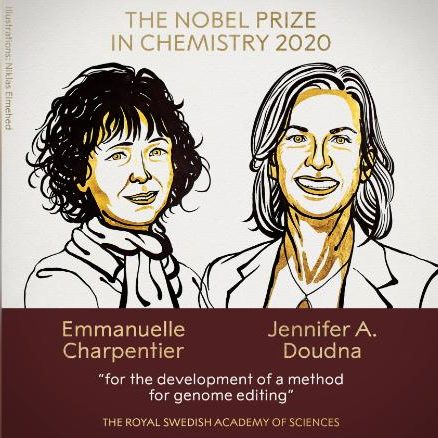Nobel prize in Chemistry to Crispr/Cas9
The Royal Swedish Academy of Sciences has awarded the Nobel Prize in Chemistry for 2020 to Emmanuelle Charpentier (Director of the Max Planck Unit for the Science of Pathogens, Berlin) and Jennifer A. Doudna (Professor at the University of California, Berkeley) “for the development of a method for genome editing.” The method in question is CRISPR/Cas9, the importance of which can hardly be overestimated. 
Prior to 2020, 183 individuals had been awarded the Nobel prize in chemistry (counting Frederick Sanger once despite him being awarded twice). There were only five female laureates: Maria Skłodowska-Curie, Irène Joliot-Curie (1935), Dorothy Hodgkin (1964), Ada Yonath (2009) and Frances Arnold (2018). Approaching the end of a year where the chemical societies have seen the need to stress the importance of equality in the chemical sciences and work places, it is well worth drawing attention to the fact that this year’s Nobel prize is split between two eminent female scientists (both of whom are younger than the writer of this column).